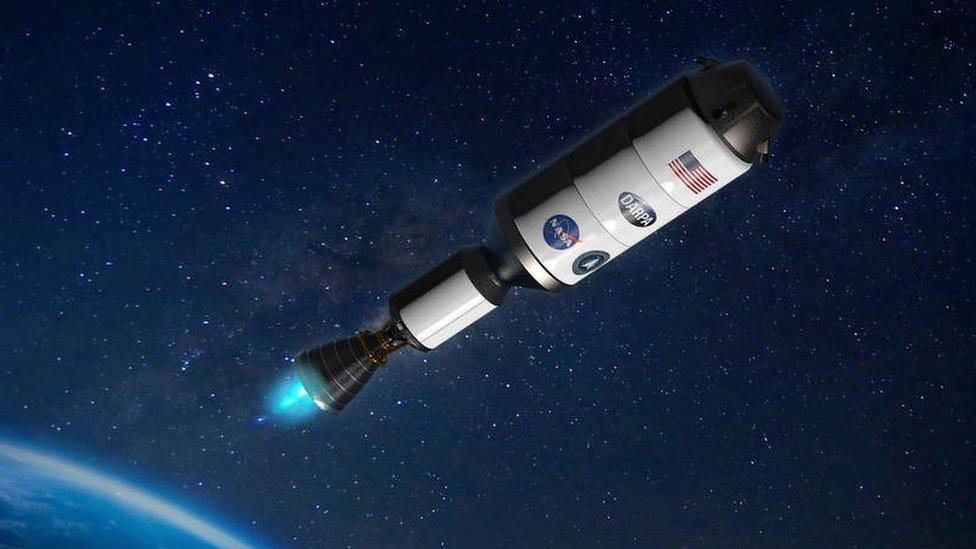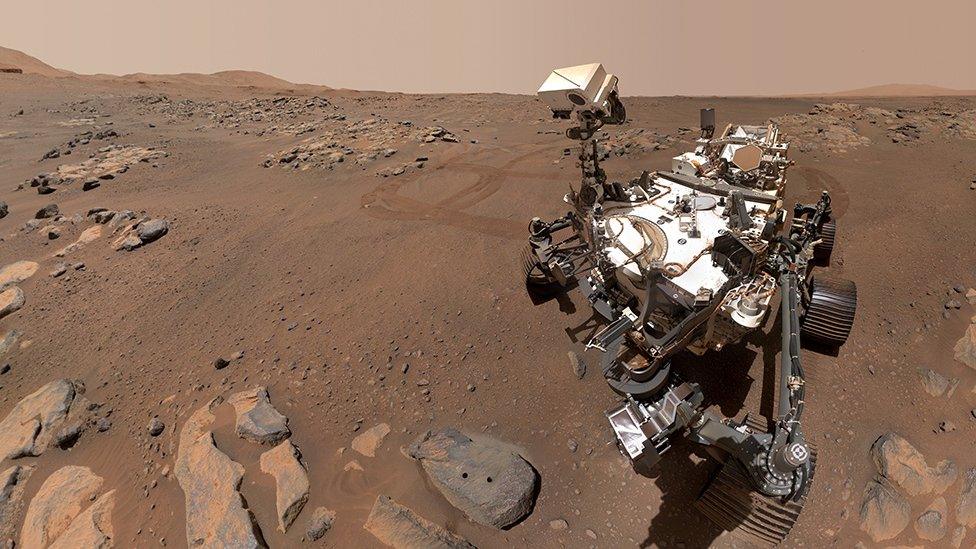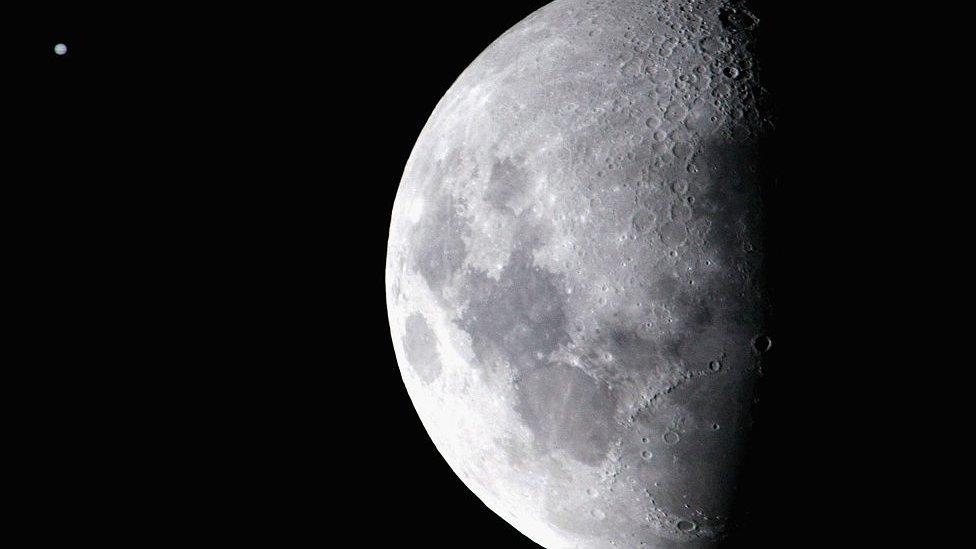Nasa: US space agency to test nuclear thermal rocket engine
- Published
- comments

Artists impression of the DRACO space which will use a nuclear thermal propulsion technology
Nasa is going to test nuclear rockets to help speed up flying to Mars.
The US space agency revealed plans to test nuclear thermal rocket engines and hope to start tests as soon as 2027.
Experts think they could be three or more times more effective than the usual power source.
The team said: "With the help of this new technology, astronauts could journey to and from deep space faster than ever."
Reducing the travel time is important for human missions to Mars because longer trips need more supplies and robust systems, so faster rockets mean safer trips.
Nuclear thermal rocket
What epic space missions we will see in 2023?
Nasa, along with the US government's Defence Advanced Research Projects Agency (Darpa) will be working on this new nuclear thermal engine technology.
"Using a nuclear thermal rocket allows for faster transit time, reducing risk for astronauts," said Nasa.
Currently a trip from Earth to Mars would take about seven months and they don't know how much time could be shaved off with this new technology, but Bill Nelson Nasa administrator said, "astronauts could journey to and from deep space faster than ever."
From the Moon to Mars
WATCH AGAIN: Nasa's Artemis I rocket blasts off (November 2022)
Nasa says using this new technology will help it meet its Moon to Mars objectives.
The Artemis missions aim to put a man and a woman on the Moon before the end of 2025.
Artemis 1, which was launched in November was un-crewed - meaning without astronauts - but Artemis 2 and 3 aim to have people on board.
These test flights to the Moon, are seen as a stepping stone to then heading to Mars.
- Published20 September 2022

- Published4 January 2023

- Published24 January 2023

